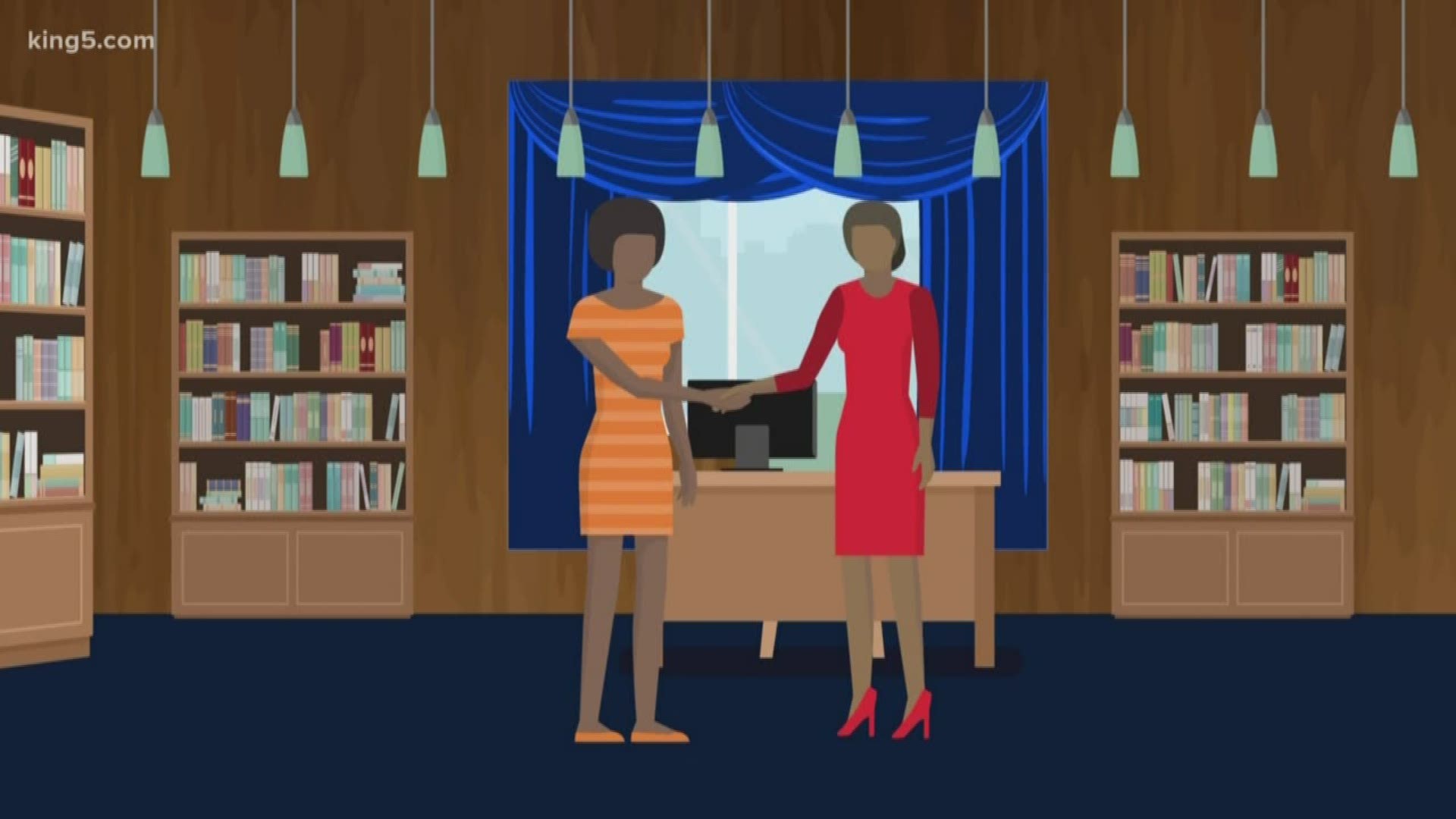OLYMPIA, Wash. — Getting a law passed in Washington State can be difficult for even the most experienced lawmakers and lobbyists. Each year, hundreds of bills die at various stages of legislation. But the lawmaking process is open to everyone, and all it takes to get a bill introduced in Olympia is a mix of motivation and skill.
If you've ever been in a scenario where you thought, "Wow, there should be a law for this," starting Jan. 11, 2021 and for the 105 days after, you have the chance to do something about it.
Step one: Find out who represents you
Each district in Washington has one senator and two representatives. Contact them and set up a meeting; they want to hear your idea! If they like it, they can introduce it as a bill. Official supporters of a bill are called “sponsors," and they’re the representatives that will show up on your bill and support you during hearings.
Step two: Testify at your bill’s hearing
The first stop on a bill’s journey, once it has a sponsor, is called a hearing. Hearings are small readings of the bill in committees of lawmakers that focus on a certain topic, like transportation. Supporters and opponents of the bill can testify during these hearings. If you’re going to testify, get there early and sign in. If you’re called to the stand, be brief, don’t repeat what others have said, and consider using a personal story to connect with lawmakers.
Step three: Meet with other legislators (lobbying) to talk about your bill
If your bill has enough support from within the committees, it will pass out and be prepared for a reading on the House or Senate floor (this depends on which representative sponsors your bill). Many bills die after committee, so at this stage it's important to gather as much support as possible from lawmakers that can advocate for a full House or Senate reading. Seeking political approval on an issue or bill is called lobbying.
Step four: Advocate for your bill by encouraging others to support it
If your bill makes it to the Senate or House floor, it needs as much support as it can get. Public support shows lawmakers they are making the right decision by choosing to support you. Of course, you can also do this on bills you do not believe should pass through legislature. A bill's process is non-linear and can go in and out of the committee many times, depending on changes or amendments lawmakers think are necessary. This is a long and laborious process so having a large body of people to support it is important.
Step five: Contact the media
If your bill passes out of the House or the Senate chamber floor, chances are it's made it into the news. Bills need to pass out of both chambers before they are sent to the Governor's desk to be signed into law. Each year, very few of the bills that are introduced into the legislature get this far. It's a big deal. Getting news media involved can help you get much-needed support from both sides of the aisle by spreading word of the bill to a larger audience.
While you contemplate how to make your own law a reality, go to leg.wa.gov to take a look at what passed through the legislature last year in Washington.

